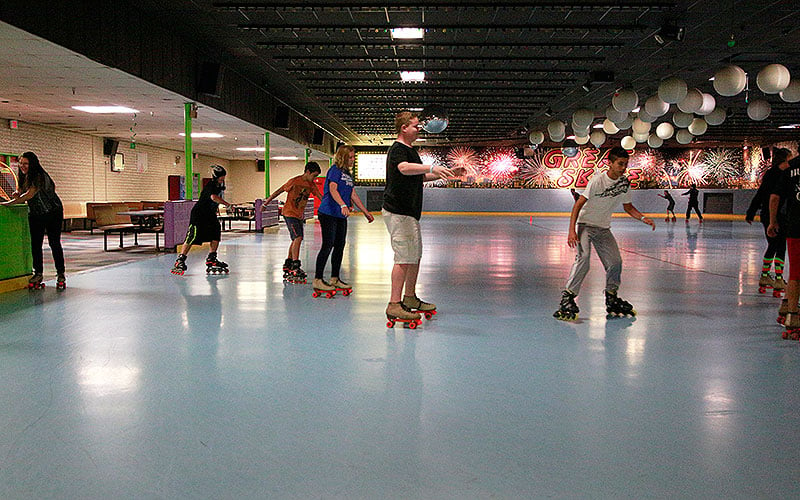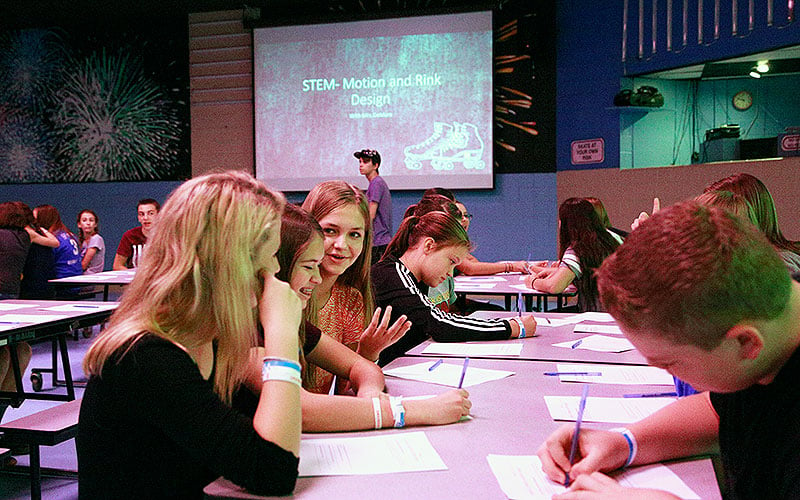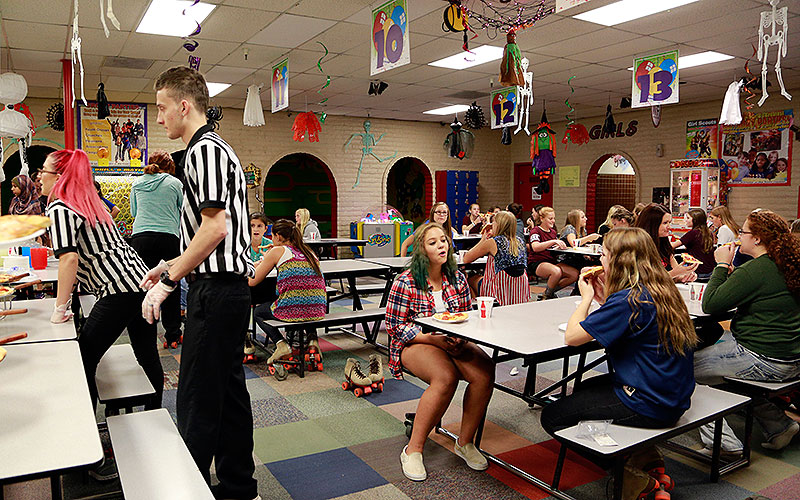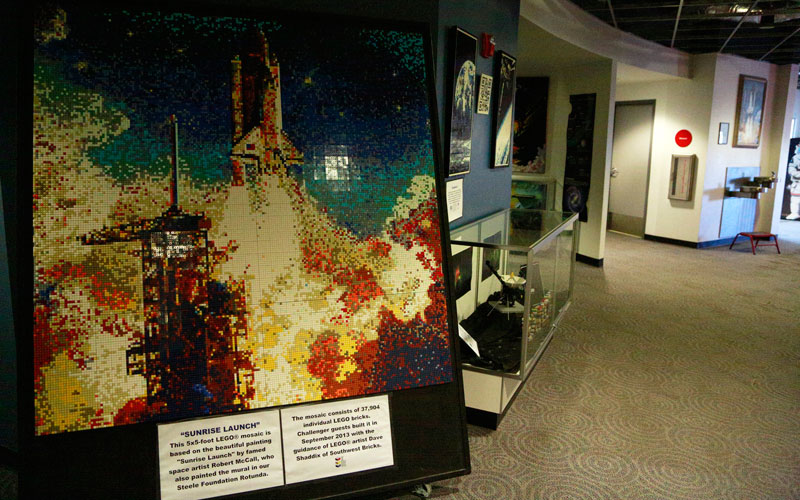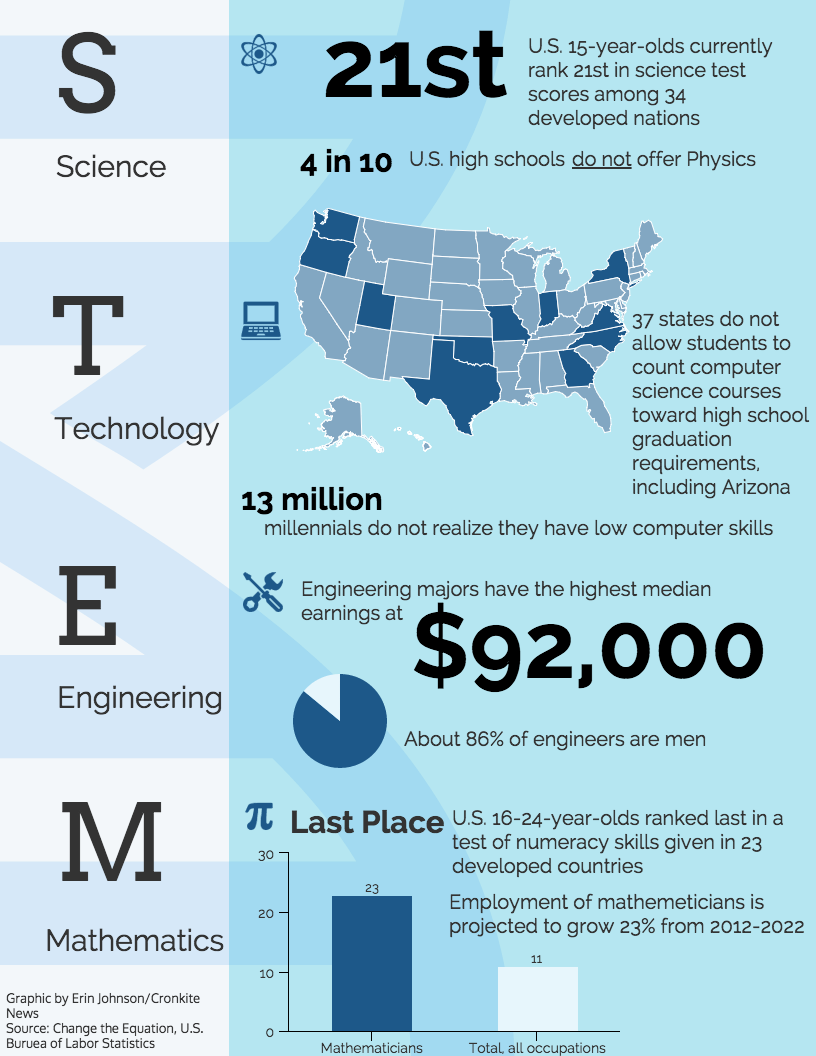The lighting is dim, the wall paint is funky. Music is playing and the disco ball is swirling as eighth graders from Anthem School roll their way around the rink at Glendale Great Skate. Their laughter and exuberance brings back memories of school field trips in years past.
But just minutes earlier, these students were seated at tables on the rink, learning about the friction of the rollerskate wheels on the wood. Before the fun, they spent an hour of the field trip with lessons about STEM – science, technology, engineering and math.
Teachers can choose from five Great Skate field trip lessons, which are tailored to current classroom lesson plans. Lessons include the science behind roller skating, motion and rink design, acoustics and rink design and engineering lighting, in addition to physics and friction. Each field trip offers two hours of physical fitness through roller skating and an hour of STEM education.
“I’m hoping they’re making connections to their own life with what we’ve been learning in class,” said Abby Rice, eighth grade science teacher at Anthem School, adding that the lesson “isn’t just something that is in the textbook, that it is something they can apply to things they do every day.”
Mike Hudoba, a STEM educator who designed the program for United Skates of America, said the goal is “to get students out of the textbook and to get them into an activity they enjoy and they have fun doing and teaching them the science.”
The lessons were developed when Glendale Great Skate general manager Bob Sietsema noticed that field trips to the rink were dropping off. He went to his corporate office to generate ideas to re-energize field trips. United Skates of America, located in Ohio, worked with Hudoba, then a graduate student at the University of Maryland to design a STEM education program for the company.
“We are in our third year,” said Sietsema. “The first year was really almost a novelty where we were dipping our toe in the water and trying it out.”
The STEM field trips are open to public, private and charter schools, as will as Girl Scout and Boy Scout troops.
“I like the idea that it is still related to STEM,” said Anthem eighth grader Kiana Beckner. “But it’s still having a good time.”
STEM education has been a major focus in Arizona recently, in hopes of generating interest in science, technology, engineering and math, and to expand the base of students who enter those fields.
“What we are trying to do with our STEM program, is let people know that it doesn’t simply have to be a rocket to the moon,” Sietsema said. “We want students to see that STEM exists in your everyday life.”
Glendale Great Skate is not the only venue in Arizona that is re-working field trips to make them meet new goals. Castles ‘n’ Coasters, Phoenix Art Museum, Challenger Space Center, Phoenix Zoo and Desert Botanical Gardens are doing the same.
“Make sure you take all of the right classes,” said Deborah DeSimone, Director of Education Development at the Arizona Challenger Space Center. “You are going to need math, you are going to need science.”
The center focuses on STEM and also gives students and teachers hands-on examples of classroom lessons.
Arizona Superintendent of Public Instruction Diane Douglas believes the state should be doing more with STEM education.
“We need to have the curriculum and the content in the classroom to make sure that the children are learning the nuts and the bolts,” said Douglas, referring to the STEM core curriculum. Douglas said the question is not about what the content is as much as it is about how to spark the children’s interest in STEM subject areas.
Responding to how traditional field trip venues have changed their field trips to meet higher levels of academic rigor and demands Douglas said, “if they can use all of these different venues, to make a child think a little differently – to think of it beyond just what might be considered a dry academic subject, I think that’s a great idea.”
And, should parents worry that children are missing class time? No way, says Anthem eighth grader Madalin Jensen.
“It’s still educational,” she said, “but we still get to have fun at the same time.”
